Have you ever wonder why do dogs have wet noses? This intriguing question is not just a simple observation but a gateway to understanding your furry friend better! Dogs’ noses are often moist, and this unique feature is more than just a cute characteristic. In fact, there are surprising benefits behind this wetness that every dog owner should know. Did you know that a wet nose can help dogs to smell better? Yes, it’s true! The moisture on their noses actually enhances their sense of smell, allowing them to detect scents more effectively. Plus, a wet nose can also indicate a dog’s health status. But what causes this wetness in the first place? Is it just a natural trait, or does it serve a more important purpose? In this article, we will dive deep into the science of why do dogs have wet noses and explore the fascinating benefits that come with it. Get ready to be amazed by the wonders of your canine companion! Whether you’re a seasoned dog owner or a curious pet lover, this is one topic that will surely catch your attention!
The Science Behind Dogs’ Wet Noses: What Makes Them Moist?

Dogs are one of the most beloved pets worldwide, and their wet noses are one of their most endearing features. But have you ever pondered why do dogs have wet noses? This question goes beyond just a cute trait; there’s a fascinating science behind it. Let’s dive into the reasons that make dogs’ noses moist and uncover the surprising benefits of this natural phenomenon.
The Anatomy of a Dog’s Nose
A dog’s nose is a complex organ. It contains millions of scent receptors, far more than humans have. The surface of a dog’s nose is made up of a specialized skin that is different from the rest of their body. This unique structure allows for moisture to be easily retained.
Here’s some interesting points about dog noses:
- Moisture Production: Dogs produce moisture through their nasal glands. This helps enhance their sense of smell.
- Temperature Regulation: The moisture on the nose can help dogs cool down. It’s similar to how sweating works in humans.
- Scent Detection: Wet noses can absorb scent particles more effectively, which aids in their incredible sense of smell.
Why Do Dogs Have Wet Noses?
So, why do dogs have wet noses? There are several reasons behind this characteristic.
Enhanced Olfactory Function: The moisture on a dog’s nose helps trap scent particles, making it easier for them to detect smells. This is crucial for their survival instincts and communication with other dogs.
Health Indicator: A wet nose is often seen as a sign of a healthy dog. However, it’s important to note that not all wet noses indicate good health; changes in moisture can be a sign of illness.
Cooling Mechanism: Dogs don’t sweat like humans do. Instead, they regulate their body temperature through their noses. The evaporation of moisture cools them down.
Communication Tool: Dogs communicate a lot with their noses. When they greet other dogs, they often sniff each other’s noses to gather information about their health and mood.
The Benefits of Wet Noses
Understanding why do dogs have wet noses leads us to some surprising benefits. Below are some of the key advantages of having a moist nose:
Enhanced Scent Tracking: Dogs can detect scents at incredibly low concentrations. A wet nose makes this even easier, allowing them to track scents over long distances.
Health Monitoring: Owners can monitor their dog’s health by checking the moisture of their nose. If it becomes dry or excessively wet, it might be time for a vet visit.
Cooling System: When the temperatures rise, a moist nose helps dogs stay cooler, as it evaporates moisture just like sweat does for humans.
Social Interactions: A wet nose is often perceived as friendly and approachable by other dogs and animals, which can enhance social interactions.
Historical Context of Dogs’ Noses
Dogs have evolved from wolves, and their noses have adapted over thousands of years. Ancient breeds used their keen sense of smell for hunting and herding. Interestingly, the wetness of a dog’s nose has been essential for their survival and interaction with their environment.
Comparisons with Other Animals
Let’s look at how dogs’ noses compare with other animals:
Cats: Cats also have moist noses, but they are less reliant on their sense of smell compared to dogs. Their noses are usually cooler and less moist.
Humans: Humans have dry noses compared to dogs. Our sense of smell is not as acute, and we rely on other senses more heavily.
Rabbits: Rabbits have moist noses too, but they primarily use it for temperature regulation rather than scent detection.
Practical Examples of Nose Care
Taking care of your dog’s nose can ensure it stays healthy. Here’s a quick checklist:
- Regular Vet Check-ups: Keep track of any changes in moisture levels.
- Hydration: Ensure your dog drinks enough water, as dehydration can affect their nose.
- Avoid Irritants: Keep your dog away from smoke and strong chemicals that can irritate their noses.
Understanding the science behind dogs’ wet noses is not just about appreciating their cute faces. It’s a glimpse into the fascinating biology of our furry friends. So, next time you see your dog with their wet nose, remember there’s more to it than just cuteness—it’s a vital part of their health and well-being.
5 Fascinating Reasons Why Dogs Have Wet Noses You Never Knew

Dogs are often called man’s best friend, and they have many fascinating qualities that make them so special. One of the most interesting things about dogs is their noses. Have you ever wondered why do dogs have wet noses? Well, it’s not just for show or because they love the rain. There are some surprising benefits to those wet noses, and here are five reasons that might just blow your mind.
1. Enhanced Sense of Smell
Did you know that a dog’s sense of smell is way better than a human’s? It’s true! Dogs have up to 300 million smell receptors in their noses, compared to a mere 5 million in humans. The moisture on a dog’s nose helps to capture scent particles more effectively. This means that when a dog sniffs something, the wetness helps to absorb the scent, allowing them to detect odors more accurately. This is why dogs are often used in search and rescue missions, as well as in detecting drugs or bombs.
2. Temperature Regulation
You might think that dogs just pant to cool down, but their noses play a role in temperature regulation too. The wetness on their noses helps to cool them down. When dogs are hot, the moisture evaporates, which can lower their body temperature. So, if you see your dog with a particularly wet nose, it might be a sign that they are trying to cool off. This natural cooling system is vital, especially during hot summer months when overheating can be a danger for dogs.
3. Communication Tool
Dogs are social animals, and their noses serve as a communication tool among themselves. A dog’s wet nose has scent glands that release pheromones, which are chemical signals used for communication. When dogs meet each other, they often sniff each other’s noses. This behavior is not just a greeting; it’s a way for them to gather information about the other dog. They can learn about the other dog’s health, mood, and even their recent experiences, just from the scents they pick up.
4. Health Indicator
A dog’s nose can also serve as a health indicator. Many people believe that a wet nose means a dog is healthy, while a dry nose could indicate sickness. While this isn’t always the case, changes in nose moisture can signal underlying health issues. For instance, if a dog’s nose suddenly becomes extremely dry, cracked, or sore, it may be a sign of dehydration or illness. Regularly checking your dog’s nose can be a simple way to monitor their health and catch potential problems early.
5. Natural Defense Mechanism
Another fascinating reason for a dog’s wet nose is its role as a natural defense mechanism. The moisture on their nose can help to trap dust, pollen, and other allergens, preventing them from entering the dog’s respiratory system. This means that a wet nose can actually help keep dogs healthier by reducing the amount of harmful particles they inhale. Additionally, the wetness can also help to keep the nose clean, making it less likely for infections to develop.
Fun Facts About Dog Noses
- Dogs’ noses come in various colors and patterns, which can be unique to each dog.
- A dog’s nose print is as unique as a human fingerprint, and can be used to identify them.
- The size of a dog’s nose can often correlate with its breed and size. Larger breeds may have larger noses, but it does not mean their sense of smell is better than smaller breeds.
- Dogs can even detect certain diseases, like cancer, through their sense of smell!
There you have it! Understanding why dogs have wet noses sheds light on their incredible biology and functionality. It’s not just a cute feature; it plays crucial roles in their health, communication, and overall well-being. So, next time you give your furry friend a pat on the head and feel that cool, wet nose, remember all the amazing things it’s doing for them! These fascinating facts not only help us appreciate our canine companions more but also emphasize their unique place in our lives.
How a Dog’s Wet Nose Can Indicate Their Health: A Must-Read for Pet Owners

Dogs are more than just pets; they are part of our family. As pet owners, we often find ourselves wondering about our furry friends’ health and well-being. One of the most intriguing features of dogs is their wet noses. Have you ever asked yourself why do dogs have wet noses? It turns out, a dog’s wet nose can indicate a lot about their health, and understanding this can help us care for them better.
What Makes a Dog’s Nose Wet?
First off, a dog’s nose is wet for several reasons. Dogs have a special kind of mucus that helps them to smell better. This mucus traps scent particles, allowing dogs to gather more information about their environment. Additionally, dogs often lick their noses to keep them moist. This behavior not only helps with their sense of smell but also cools them down, since dogs don’t sweat like humans do.
The Health Indicator
So, why is a wet nose important for pet owners? A wet nose is usually a sign of a healthy dog. Dogs with a moist nose are typically hydrated and in a good state of health. However, it’s not always black and white. Here are some health clues that can be indicated by the state of your dog’s nose:
- Cold and Wet Nose: This is generally a sign of a healthy dog. A cold, wet nose usually indicates that your dog is feeling well.
- Dry Nose: If your dog’s nose is dry, it could indicate dehydration or even fever. However, a dry nose alone isn’t enough to diagnose an illness.
- Warm Nose: A warm nose might suggest that your dog is unwell, especially if it’s accompanied by other symptoms like lethargy or not eating.
- Cracked or Flaky Nose: This could signal a skin condition or even allergies, so it’s best to consult a vet if you notice this.
Surprising Benefits of a Wet Nose
Did you know that a dog’s wet nose can offer several benefits? Here’s a rundown of why keeping your dog’s nose moist can be important:
- Enhanced Smell: The moisture on a dog’s nose helps them to capture scents more effectively, making them better hunters and companions.
- Temperature Regulation: A wet nose helps to cool down dogs, aiding in their thermoregulation.
- Hydration Indicator: The state of a dog’s nose can be a quick way to assess their hydration level. If it’s dry, it might be time to offer some water.
Historical Context
Throughout history, dogs have been celebrated for their keen sense of smell. Ancient cultures, including Egyptians and Greeks, recognized the importance of dogs in hunting and tracking. The wet nose is a feature that has evolved over time, enhancing their ability to detect scents. In fact, dogs can smell up to 100,000 times better than humans, with their wet noses playing a crucial role in this extraordinary ability.
What to Monitor
As a responsible pet owner, it’s crucial to keep an eye on your dog’s nose and overall health. Here’s what to watch for:
- Changes in Moisture: Look for sudden changes in how wet or dry your dog’s nose is.
- Temperature Variations: Regularly check if your dog’s nose feels warmer than usual.
- Behavioral Changes: If your dog seems lethargic or is behaving differently, it might be time to check their nose and consult a vet.
- Accompanying Symptoms: Note any other signs of illness, such as vomiting, diarrhea, or lack of appetite.
Quick Reference Table
Here’s a simple table to help you remember what different nose conditions can mean:
| Nose Condition | Possible Indication |
|---|---|
| Cold and Wet | Healthy dog |
| Dry | Possible dehydration or illness |
| Warm | Possible fever or illness |
| Cracked/Flaky | Skin condition or allergies |
As a dog owner, understanding your pet’s health is essential. While a wet nose is a good sign, it is just one of many indicators of your dog’s well-being. Regular checkups with a veterinarian are vital to ensure your dog stays healthy and happy. Keep observant, and don’t hesitate to seek professional advice if something seems off. After all, your furry friend relies on you for their health and happiness.
The Surprising Benefits of Wet Noses: Why Your Dog’s Snout is a Health Indicator
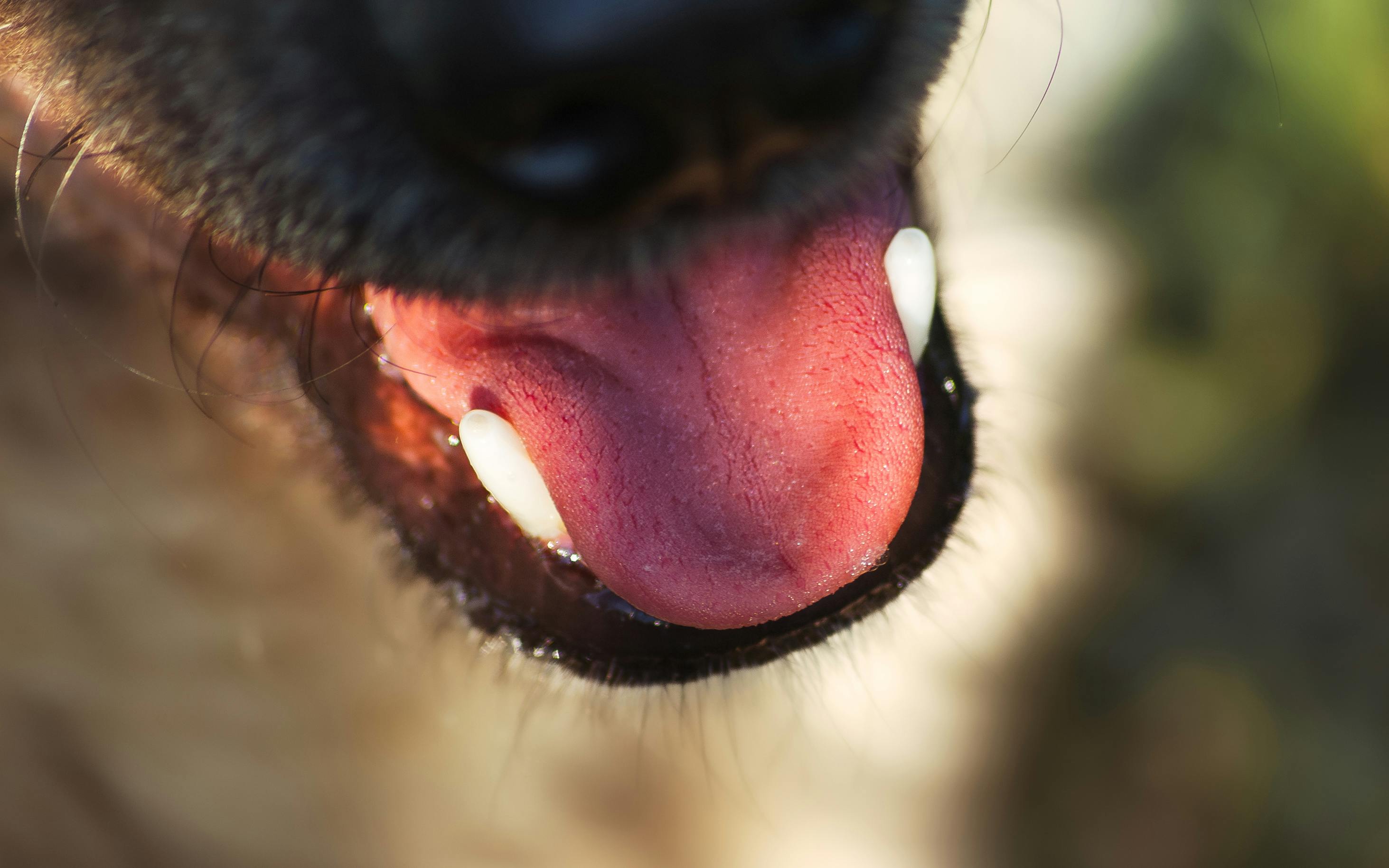
Dogs are often called man’s best friend, and rightfully so. One of the most endearing traits of our furry companions is their wet noses. But, did you ever wonder why do dogs have wet noses? Well, turns out, there’s more to those moist snouts than just being cute. They serve as significant health indicators and have several surprising benefits. Let’s dive into the fascinating world of dog noses and uncover their secrets.
The Science Behind Wet Noses
A dog’s nose is a marvel of nature. It’s not just wet for fun! The moisture on a dog’s snout comes from a combination of sweat glands and saliva. This wetness serves various purposes, all related to their health and survival.
- Cooling Mechanism: Dogs don’t sweat like humans. Instead, they rely on their noses to help regulate body temperature. The moisture evaporates, which cools them down.
- Enhanced Scent Detection: A wet nose absorbs scent molecules more effectively. This means dogs can sniff out things better than we can. Their sense of smell is estimated to be anywhere from 10,000 to 100,000 times more sensitive than ours!
Health Indicators
You might be surprised to learn that a dog’s nose can tell you a lot about their health. Here are some signs to watch for:
- Temperature: A cold, wet nose often indicates a healthy dog, while a warm and dry nose might suggest a fever.
- Consistency: If your dog’s nose suddenly becomes excessively dry or cracked, it could indicate dehydration or health issues.
- Color Changes: A change in color, such as turning pale or developing sores, could be a sign of allergies or other medical concerns.
Why Do Dogs Have Wet Noses? Discover The Surprising Benefits!
The benefits of a wet nose go beyond health indicators. They are also crucial for communication and interaction.
- Social Interactions: Dogs use their noses to “greet” other dogs. When they sniff, they gather a lot of information about the other pooch, like their mood, diet, and even their health status!
- Environmental Awareness: Wet noses allow dogs to pick up scents from the environment more easily. This ability is vital for hunting and exploring, which is part of their instinctual behavior.
Historical Context of Dog Noses
Dogs have been companions to humans for thousands of years, and their noses have evolved along with them. Historically, humans have relied on dogs for hunting, herding, and protection. Their strong sense of smell has been utilized in various fields, including:
- Search and Rescue: Dogs have been trained to locate missing persons using their incredible olfactory abilities.
- Detection Work: Police and military dogs are often used for detecting drugs, explosives, and even diseases like cancer.
Practical Examples of Nose Health
Here’s a simple checklist for dog owners to monitor their furry friends’ nose health:
- Check for Moisture: Is your dog’s nose dry or cracked? Monitor it regularly.
- Temperature Check: Is it cool or warm? If it feels unusually warm, take note.
- Look for Discoloration: Keep an eye out for any changes in color or texture.
Fun Facts About Dog Noses
- Unique Patterns: Just like human fingerprints, every dog’s nose print is unique. It can actually be used to identify them!
- Nasal Turbinates: Dogs have complex nasal structures that help them process scents. These turbinates are responsible for filtering and humidifying the air they breathe.
- Nosework: Many dog owners now engage their pets in “nosework” activities. This training taps into their natural sniffing abilities and provides mental stimulation.
Understanding why do dogs have wet noses can deepen your bond with your furry companion. Not only are these noses essential for their survival, but they also offer insights into their health and behavior. By keeping an eye on the moisture and condition of their noses, you can help ensure your dog stays healthy and happy.
So next time you give your pup a scratch behind the ears, take a moment to appreciate that wet nose—it’s not just adorable, it’s a vital part of their well-being!
Do Wet Noses Help Dogs Smell Better? Discover the Incredible Truth!

Ever wondered why do dogs have wet noses? This question has puzzled many dog lovers, but the truth is, there’s more to those damp snouts than meets the eye. Wet noses in dogs help them smell better, aiding their already impressive olfactory abilities. Let’s dive into this fascinating topic and uncover the incredible truth behind canine noses!
The Science Behind Wet Noses
Dogs have an extraordinary sense of smell, estimated to be between 10,000 to 100,000 times more sensitive than humans. Their noses, covered in a moist layer, plays a crucial role in their ability to detect scents. But why is this moisture so important?
- Enhanced Olfactory Function: The moisture helps to capture scent particles in the air. When a dog sniffs, the wet surface of their nose collects these particles, making it easier for them to analyze odors.
- Temperature Regulation: A wet nose helps regulate a dog’s body temperature. Just like sweating for humans, dogs can cool themselves down through their noses.
Why Do Dogs Have Wet Noses?
You might be surprised to learn that the wetness of a dog’s nose isn’t just for show. It serves several practical purposes:
- Scent Detection: The wetness traps scent particles, making it easier for dogs to identify and distinguish different smells. This is why they can find things that are hidden or lost.
- Health Indicator: A dog’s nose can be an indicator of their health. A wet, cool nose often means the dog is healthy, while a dry or warm nose can sometimes signal illness.
- Communication: Dogs use their noses to communicate with each other. The scent left behind can tell other dogs about their health, mood, and reproductive status.
Historical Context
Throughout history, the importance of a dog’s sense of smell has been recognized. Ancient civilizations relied on dogs for hunting and tracking due to their acute olfactory senses. For instance, bloodhounds were used in medieval England for tracking down criminals. Their wet noses were an asset, allowing them to follow scents over long distances.
Fun Facts About Dog Noses
- Unique Nose Prints: Just like human fingerprints, each dog has a unique nose print that can be used for identification.
- Breeds Matter: Some breeds have wetter noses than others. For example, Retrievers and Bloodhounds typically have moist noses, while Bulldogs may have drier noses.
- Scent Discrimination: Dogs can distinguish between different scents, even if they are very similar. They can smell a single drop of liquid in a million drops of water.
The Benefits of a Wet Nose
So, what are the surprising benefits of those wet noses? Here’s a quick rundown:
- Improved Smelling Ability: As mentioned, wet noses help capture scent particles, enhancing their ability to smell.
- Health Monitoring: A change in nose moisture can alert owners to potential health issues.
- Cooling Mechanism: By maintaining moisture, dogs can regulate their body temperature effectively.
- Social Interaction: Dogs communicate through scent, and a wet nose helps them interact more effectively with other dogs.
How to Keep Your Dog’s Nose Healthy
Just like any part of their body, keeping your dog’s nose healthy is important. Here’s a list of tips:
- Hydration: Ensure your dog always has access to fresh water. Hydration is key to keeping that nose moist.
- Regular Vet Check-ups: Routine visits can help catch any health problems early.
- Watch for Changes: Keep an eye on the moisture level of your dog’s nose. A sudden change could indicate a health issue.
Do Wet Noses Help Dogs Smell Better?
Absolutely! Wet noses are essential for dogs’ smelling capabilities. They act like nature’s built-in scent catchers, enabling dogs to pick up on scents that are invisible to us. It’s fascinating how a simple feature, like a wet nose, can have such a profound impact on a dog’s life and well-being.
In the end, understanding why do dogs have wet noses not only enrich our knowledge about these furry companions but also enhances our bond with them. So, next time you see your dog with that damp nose, remember all the incredible science and benefits behind it!
Why Do Dogs Have Wet Noses? Unpacking the Myths and Facts
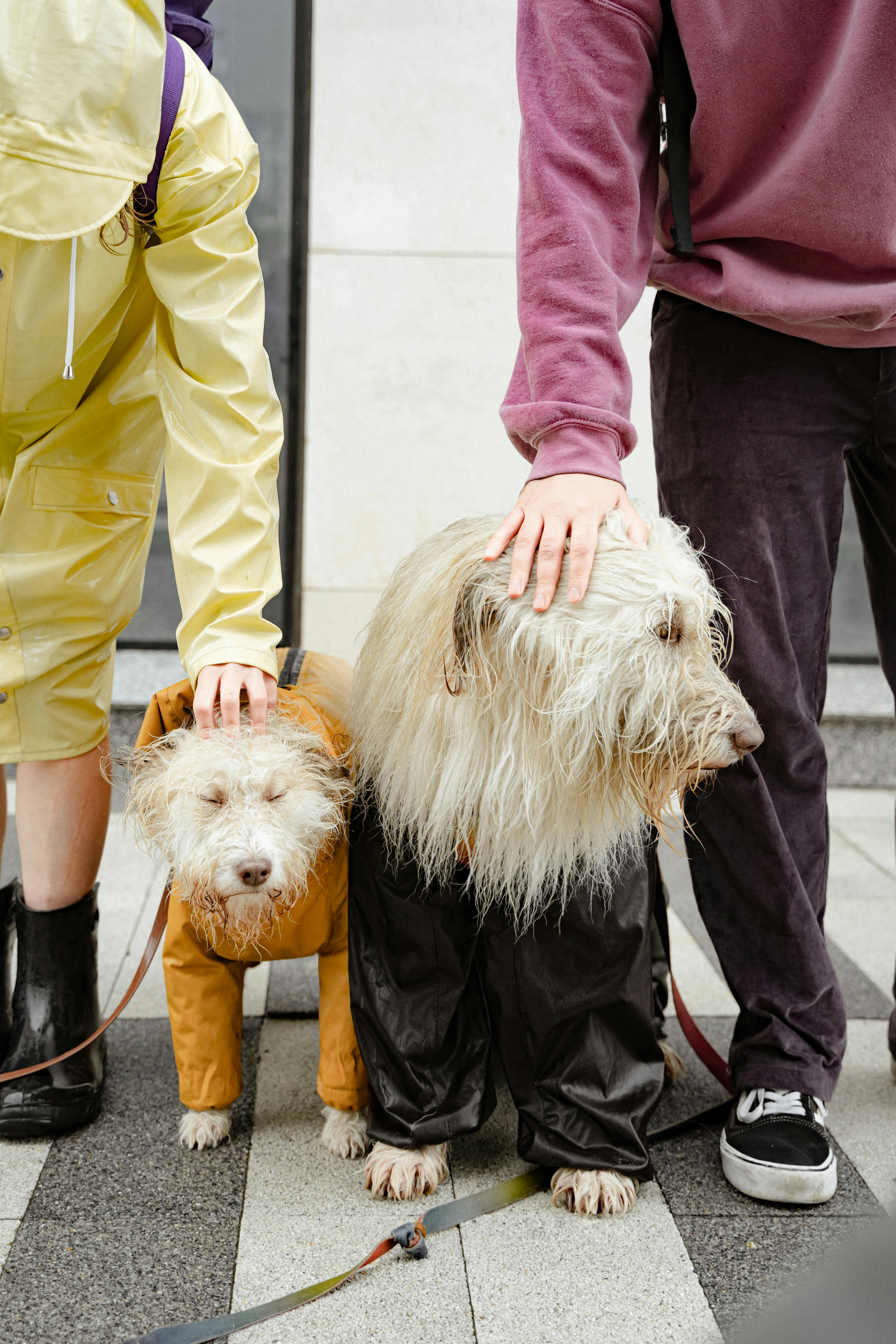
If you ever wondered why dogs have wet noses, you’re not alone. This peculiar trait has puzzled many dog owners and animal lovers alike. Some people think it’s just a quirky feature, while others believe it holds more significance. From aiding in their sense of smell to regulating body temperature, the wet nose of a dog serves multiple purposes. Let’s dive deeper into the facts and myths surrounding this fascinating canine characteristic.
The Science Behind Wet Noses
Dogs noses are wet primarily due to a combination of moisture, secretions, and environmental factors. The surface of a dog’s nose contains mucous membranes that secrete a thin layer of moisture. This helps dogs to detect scents more effectively. When a dog sniffs, the moisture captures scent particles from the air, allowing them to process smells with greater precision. Here’s a breakdown of how it works:
- Increased Olfactory Function: The wetness helps in trapping scent particles, making it easier for dogs to smell.
- Temperature Regulation: Dogs can’t sweat like humans do. Their noses can help them cool down by evaporating moisture.
- Health Indicator: A wet nose is often seen as a sign of good health. However, it’s not a definitive measure, since a dry nose doesn’t always mean a dog is sick.
Myths About Wet Noses
There are plenty of myths surrounding why do dogs have wet noses. Here are some common beliefs that are simply not true:
Myth 1: A wet nose means the dog is sick.
Fact: While some illnesses can cause a dog’s nose to become dry, it’s not an absolute indicator of health.Myth 2: Dogs lick their noses to keep them wet.
Fact: Dogs do lick their noses, but it’s not the primary reason they stay moist. Their noses are naturally wet due to secretions.Myth 3: All dogs have wet noses.
Fact: Some breeds may have drier noses. Factors like breed, climate, and health can influence the moisture level.
Surprising Benefits of Wet Noses
Now that we’ve unpacked some myths, let’s discuss the benefits of having a wet nose. These benefits can be surprising to many dog owners.
Enhanced Scent Detection: Dogs have an incredible sense of smell, estimated to be 10,000 to 100,000 times more sensitive than that of humans. The wetness of their noses plays a critical role in this ability.
Cooling Mechanism: Dogs can easily overheat, especially in warm weather. Their noses can help in regulating body temperature through evaporation.
Emotional Connection: Dogs often nuzzle their wet noses against humans as a sign of affection. It can create bonding moments during playtime or cuddling.
Comparisons with Other Animals
It’s interesting to compare dogs with other animals regarding this feature. Here’s a little table to illustrate the differences:
| Animal | Nose Characteristics |
|---|---|
| Dogs | Wet, helps in scent detection, temperature regulation |
| Cats | Dry, less reliance on scent, but still use their noses |
| Horses | Moist, but mainly dry, used for smelling food and danger |
| Pigs | Wet, helps in rooting and finding food |
Practical Examples of Nose Care
Taking care of your dog’s nose is essential. Here are some practical tips to ensure their noses stay healthy:
- Regular Check-Ups: Regular veterinary visits can help monitor your dog’s health, including their nose condition.
- Hydration: Ensure your dog drinks enough water, especially in hot weather, to avoid dehydration which can lead to a dry nose.
- Protect from Cracking: Use dog-safe balms to protect their nose during winter or if you notice it becoming dry and cracked.
Conclusion
Understanding why dogs have wet noses opens up a world of insights about our furry friends. It’s a blend of science, health, and affection that makes this characteristic so special. Whether it’s for enhancing their sense of smell or cooling down, dogs’ wet noses serve many purposes that contribute to their overall well-being. So, the next time you see your dog with that adorable, shiny nose, remember the fascinating facts behind it!
The Role of a Wet Nose in Dog Communication: What You Need to Know
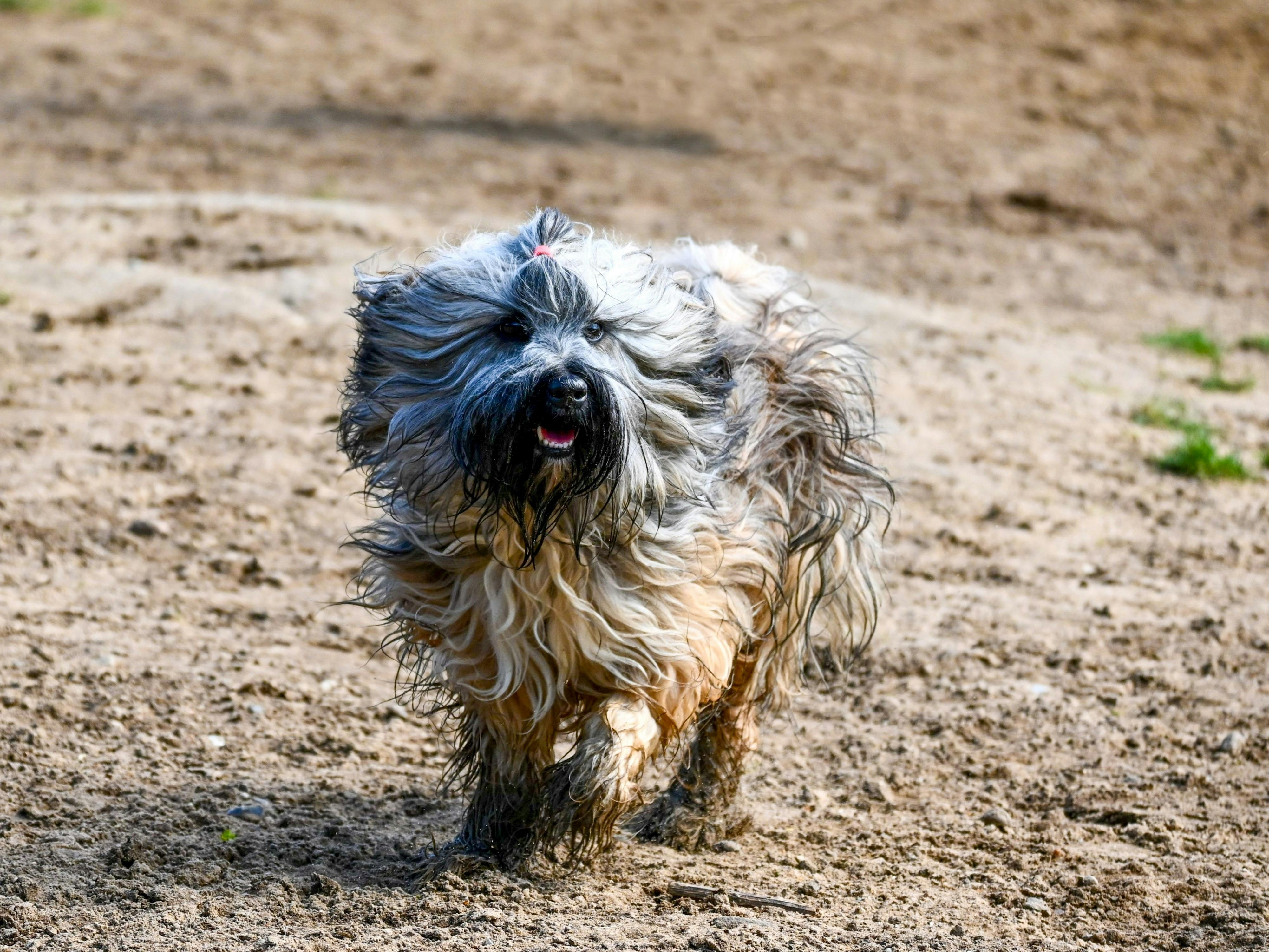
Dogs are often called man’s best friend, and part of what makes them so special is their unique way of communicating. One of the most fascinating aspects of dog communication is their wet noses. You may have wondered, why do dogs have wet noses? Well, there’s more to it than just a simple trait. Understanding the role of a wet nose in dog communication can help you better connect with your furry companion. Let’s dive into the surprising benefits and purpose of those moist noses!
What Makes a Dog’s Nose Wet?
A dog’s nose is typically moist due to a combination of factors. The surface of the nose contains numerous sweat glands, which help keep it cool and wet. Here’s some interesting facts about why dog noses are wet:
- Sweat Glands: Dogs sweat mainly through their paw pads, but their noses also secrete moisture.
- Temperature Regulation: The wetness helps regulate their body temperature, especially when they get hot or excited.
- Scent Enhancement: A wet nose can capture scent particles better, allowing dogs to smell more effectively.
The Role of a Wet Nose in Communication
Dogs communicate in various ways, and their noses play an important role in this. A wet nose can help signal different emotions and intentions. For example, when a dog nudges you with their wet nose, they might be seeking attention or affection. This is often a sign that they’re comfortable and want to engage with you.
- Nudging: A gentle nudge with a wet nose often means, “Hey, pay attention to me!”
- Sniffing: Dogs rely heavily on their sense of smell, so a wet nose helps them gather more information about their environment.
- Greeting: When dogs meet each other, they often sniff each other’s noses, which is a way to gather information about the other dog and establish social connections.
Why Is a Wet Nose Important for Dogs?
There are several benefits tied to having a wet nose. Not only does it help with communication, but it also plays a role in health and behavior.
- Health Indicator: A wet nose can be an indicator of a dog’s health. Generally, a healthy dog has a wet, cool nose, while a dry or warm nose might suggest dehydration or illness.
- Scent Discrimination: The moisture on a dog’s nose helps capture scent particles, enabling dogs to distinguish between various smells.
- Body Language: Dogs express their feelings through body language, and a wet nose can be an extension of that. A dog that wants to play may approach you with a playful nudge.
Historical Context of Dog Noses
Throughout history, dogs have been bred for specific traits, and their noses have always been an essential part of their anatomy. In ancient times, humans relied on dogs for hunting and herding, and their sense of smell was invaluable. Dogs with wet noses were often seen as more adept at tracking scents, which would have made them more desirable companions.
- Tracking & Hunting: Dogs such as Bloodhounds have been specifically bred for their powerful sense of smell. Their wet noses are critical for tracking scents over long distances.
- Companionship: As time passed, dogs evolved from working animals to beloved companions. The wet nose remained a key characteristic that signifies health and vitality.
Fun Facts About Dog Noses
Here are some fun and surprising facts about dog noses that you might not know:
- Unique Patterns: Just like human fingerprints, every dog’s nose print is unique.
- Temperature Sensitivity: Dogs can sense changes in temperature through their noses, which can help them detect changes in their environment.
- Nosework: Many dogs are trained for scent work, using their noses to find specific items or track scents, showing how vital their wet noses are for tasks beyond regular communication.
The Importance of Nose Care
Taking care of your dog’s nose is essential. Here are a few pointers on how to keep it healthy:
- Hydration: Ensure your dog is well-hydrated, especially in hot weather.
- Moisturize: If your dog has a dry or cracked nose, consider using a vet-approved moisturizer.
- Regular Check-ups: Regular vet visits can help ensure that your dog’s nose is healthy and functioning as it should.
With all this information, it’s clear that a dog’s wet nose is much more than just a cute feature. It’s a vital part of their communication system, health, and overall well-being. Next time your furry friend nudges you with their cool, wet nose, you’ll know it’s not just a random act; it’s their way of expressing love, curiosity, and connection. Understanding these nuances can deepen your bond with your canine companion.
7 Reasons Why Dogs’ Wet Noses Are More Than Just Cute

If you ever wondered why dogs have wet noses, you’re not alone! Many people just think it’s a cute quirk, but there’s actually a lot more to it. Dogs’ wet noses serve several important functions, and understanding them can improve how you care for your furry friend. Here are seven reasons why those wet noses are more than just adorable.
1. Sense of Smell
Dogs have an incredible sense of smell, and their wet noses plays a big part in that. The moisture on their noses helps capture scent particles from the air, allowing them to detect smells better. This is why you see your dog sniffing around all the time!
- A dog’s sense of smell is about 10,000 to 100,000 times more sensitive than humans.
- Wet noses absorb scent molecules which make it easier for dogs to identify different smells.
2. Temperature Regulation
Did you know that dogs can’t sweat like humans? They primarily rely on panting and their noses to regulate body temperature. A wet nose can help cool them down.
- Dogs have sweat glands, but they are mostly in their paw pads.
- A cool, wet nose can signify a dog is healthy and not overheated.
3. Communication Tool
Dogs also use their noses for social interactions. A moist nose can indicate a dog’s mood. For example, a playful dog might have a wetter nose, while a stressed dog might have a dryer one.
- Dogs often greet one another by sniffing noses.
- A wet nose can mean your dog is excited or happy to see you!
4. Health Indicator
Monitoring your dog’s nose can be a way to check on their health. A sudden change from wet to dry could signal a health issue.
- A healthy dog usually has a cool, moist nose.
- If your dog’s nose becomes warm and dry, it might be a sign of fever or illness.
5. Enhanced Hunting Ability
For working dogs, especially those trained for hunting or tracking, a wet nose is an asset. It helps them follow scents over long distances, which is crucial in their jobs.
- Bloodhounds, for example, can track a scent trail that is several days old due to their wet noses.
- This ability is critical in search and rescue operations.
6. Environmental Awareness
Wet noses also help dogs be more aware of their environment. The moisture attracts and holds scent, making it easier for dogs to assess their surroundings.
- Dogs can identify scents in the environment and make decisions based on what they smell.
- This is why dogs seem to know when something is off or unusual in their surroundings.
7. Bonding and Affection
Finally, a dog’s wet nose is a way they express affection. When your dog nudges you with their nose, it’s not just for attention; it’s a sign of love and trust!
- Dogs often greet their humans with a wet nose, showing they are happy and comfortable.
- This behavior encourages bonding and strengthens your relationship.
Quick Facts About Dogs’ Wet Noses
- Healthy dogs usually have moist noses, but it can vary.
- Not all dogs have the same nose moisture level, depending on their breed and health.
- Dogs can get dry noses due to allergies, sunburn, or dehydration.
Comparison of Dog Nose Conditions
| Condition | Description | Potential Causes |
|---|---|---|
| Normal | Moist, cool, and healthy | Normal body function |
| Dry | Lack of moisture, can indicate health issues | Dehydration, allergies |
| Warm | May indicate fever or illness | Infection, stress |
Understanding why do dogs have wet noses can help you be a better pet owner. Not only does it affect their health and communication, but it also plays a role in their unique behaviors. So next time you give your dog a pat, notice that wet nose; it’s doing a lot more than just being cute! By recognizing the importance of a dog’s wet nose, you can take better care of your furry friend and ensure they live a happy and healthy life.
How Wet Noses Contribute to Your Dog’s Sense of Taste: The Link Explained
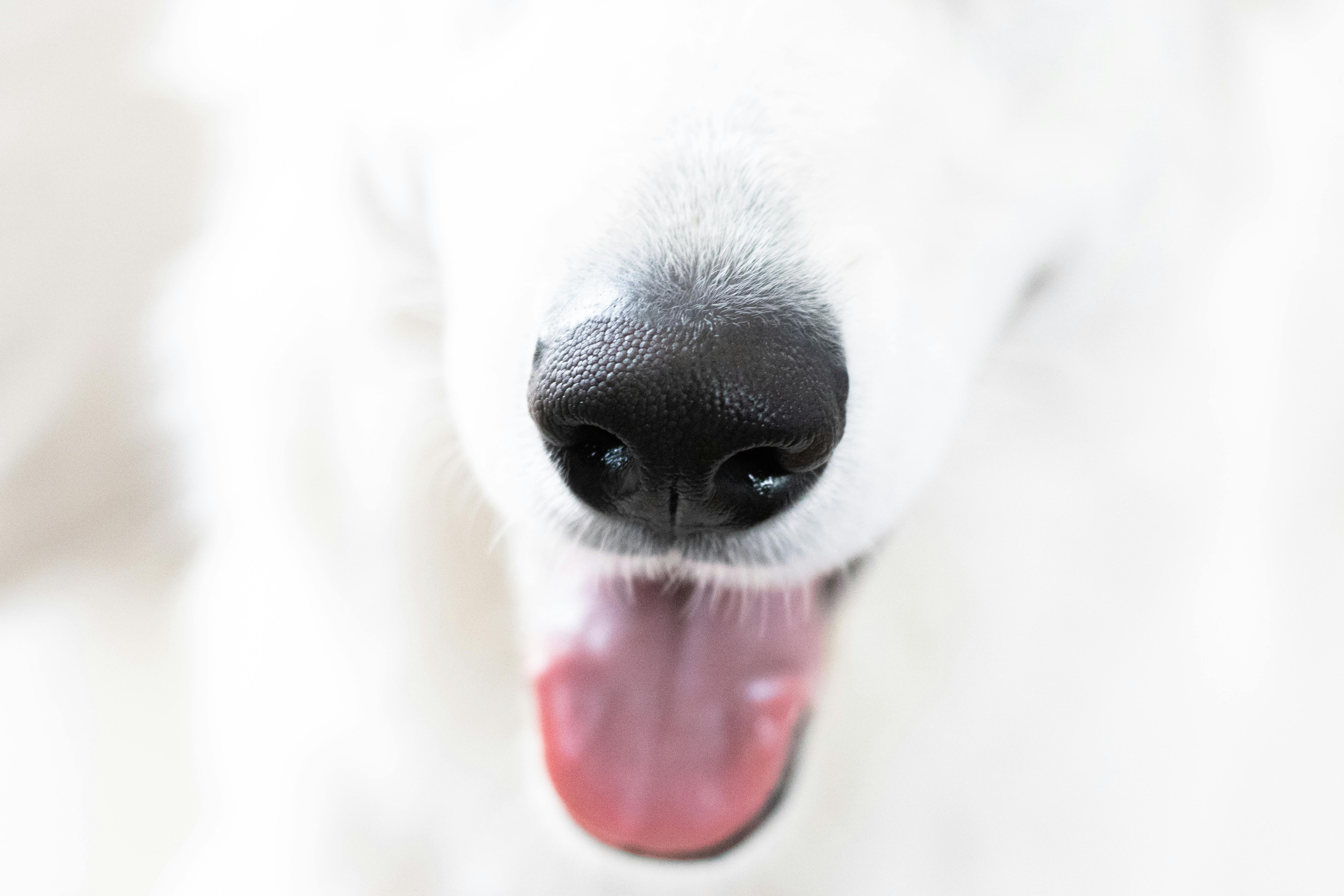
Dogs are truly fascinating creatures, and one of the most interesting things about them is their wet noses. You might have noticed your furry friend’s nose always moist, but have you ever wonder why that is? It turns out, this isn’t just a quirky feature but plays a significant role in how dogs experience the world, especially their sense of taste. In this article, we gonna dive into the reasons why dogs have wet noses, how it helps with their sense of taste, and some surprising benefits that come along with it.
Why Do Dogs Have Wet Noses?
The wetness of a dog’s nose isn’t just random; it serves several important functions. Here are a few key points to consider:
Temperature Regulation: Dogs don’t sweat like humans do. Instead, they rely on their noses to help cool down. The moisture on the nose evaporates, which helps to regulate their body temperature.
Enhanced Senses: A wet nose can enhance a dog’s sense of smell. The moisture helps to capture scent particles from the air, making it easier for dogs to identify different smells. This is essential for their hunting instincts and overall interaction with their environment.
Health Indicator: A dog’s nose can be an indicator of its health. A healthy dog typically has a moist and cool nose. A dry or warm nose could indicate dehydration, fever, or illness.
How Wet Noses Contribute to Your Dog’s Sense of Taste
Now, let’s discuss how a wet nose can actually contribute to a dog’s sense of taste. Dogs, like humans, have taste buds—but they also rely heavily on their sense of smell when it comes to tasting food. Here’s how it all connects:
Scent and Flavor: Studies show that around 80% of what we perceive as taste is related to smell. For dogs, a wet nose helps to capture more scent particles, which they then use to enhance their flavor perception.
Taste Buds Count: Dogs have about 1,700 taste buds compared to humans who have around 9,000. This means they might not taste flavors as vividly, but they make up for it with their incredible sense of smell, aided by their wet noses.
Food Preferences: A dog’s preference for certain foods often based on how they smell rather than how they taste. The wetness of their nose plays a crucial role in this process, making food more appealing.
Surprising Benefits of Wet Noses
You might be thinking a wet nose is just a natural feature, but it actually comes with various benefits. Here are some of the surprising advantages of those wet noses:
Social Interaction: Dogs often greet each other by sniffing noses, which is a key part of their social behavior. A wet nose can make this process more effective, allowing them to gather more information about their canine counterparts.
Better Detection of Pheromones: Pheromones are chemical signals that dogs use to communicate. A wet nose helps them detect these signals better, which can affect their mood, behavior, and social interactions.
Improved Health Monitoring: Pet owners can use the condition of a dog’s nose as a quick health check. A consistently dry or cracked nose can be a sign to consult a veterinarian, helping in early detection of health issues.
Comparisons: Wet vs. Dry Noses
When comparing wet noses to dry noses, there are some clear distinctions that can be made. Here’s a quick overview:
Wet Nose:
- Cool to the touch
- Indicative of a healthy dog
- Enhances sense of smell and taste
- Helps in cooling down the body
Dry Nose:
- Warm or hot to the touch
- Can indicate illness or dehydration
- May reduce the ability to capture scents
Final Thoughts
Understanding why do dogs have wet noses and how they contribute to their sense of taste can deepen your appreciation for these lovable companions. The combination of their moist noses and heightened sense of smell allows dogs to experience the world in ways we can only imagine. Next time you see your dog with their wet nose, remember that it’s not just a cute quirk; it’s an essential part of their biology that helps them navigate their environment, enjoy their food, and interact with other pets. So, let’s cherish those wet noses and the unique way they connect us with our furry friends!
Keeping Your Dog’s Nose Healthy: Tips for Maintaining That Signature Wetness!
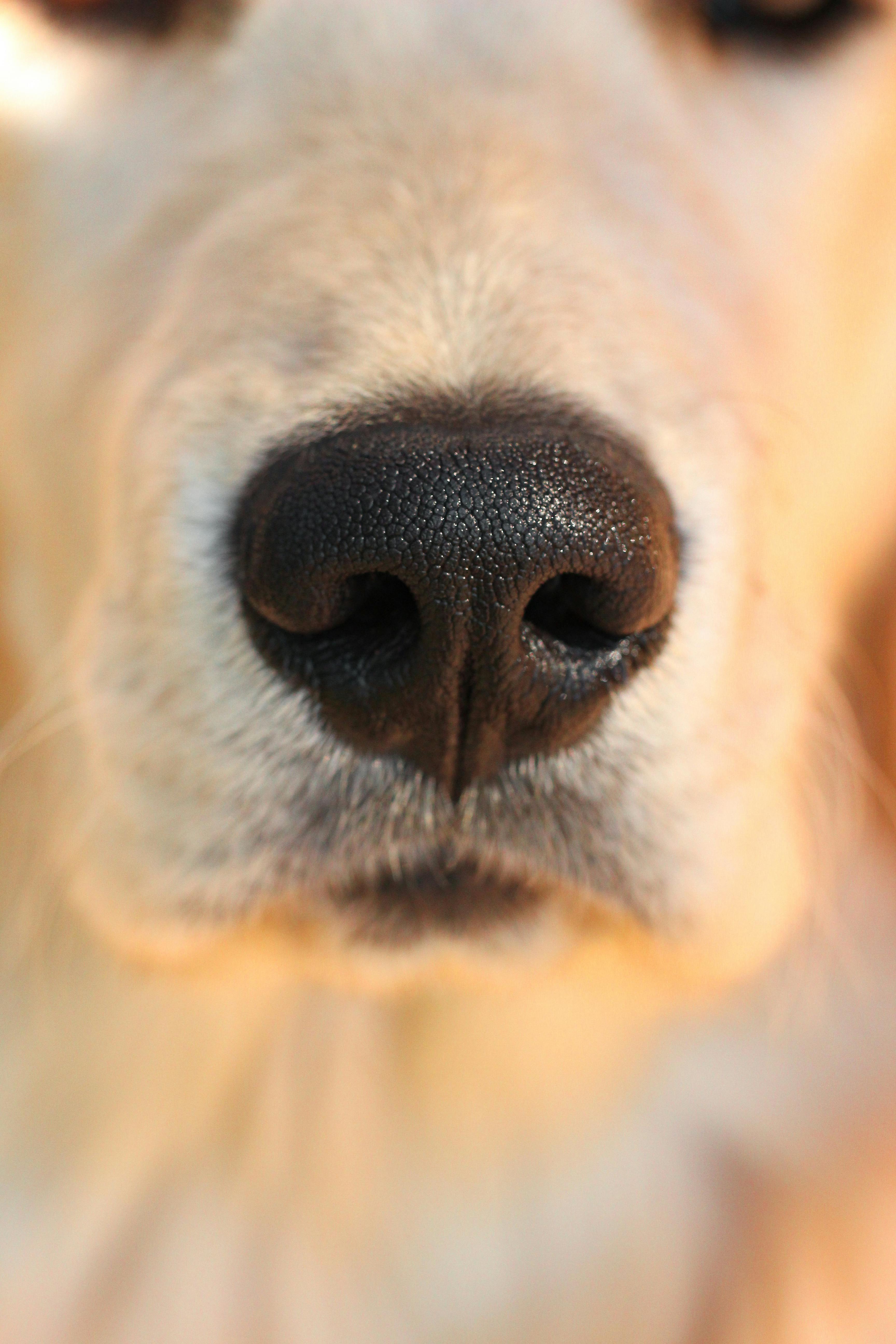
Dogs are such amazing companions, and one of their most distinct characteristics is their wet noses. You might wonder why dogs have wet noses, and there is actually some surprising benefits behind this unique feature. Keeping your dog’s nose healthy is essential for their overall well-being. This article aim to provide practical tips and insights into maintaining that signature wetness while also exploring the fascinating reasons behind it.
Why Do Dogs Have Wet Noses?
Dogs noses are wet for several reasons, and understanding these can help you appreciate why it’s so important to keep them healthy. Here are some key points:
Temperature Regulation: Dogs don’t sweat like humans do. They release heat through their noses. A wet nose helps them cool down, especially on hot days.
Enhanced Scent Detection: The moisture on a dog’s nose helps to capture scent particles in the air. This is why dogs are such great sniffers. They can smell things we can’t even imagine!
Health Indicator: A dog’s nose can be an indicator of its health. A dry or cracked nose might signal dehydration or illness, while a healthy nose is usually moist and cool.
These points show how essential a wet nose is for your furry friend’s health and functionality. A well-hydrated nose can prevent a lot of potential problems.
Keeping Your Dog’s Nose Healthy
Maintaining your dog’s nose is simpler than you might think. Here are some practical tips you can follow:
Hydration: Make sure your dog drinks enough water. Dehydration can lead to a dry nose, which can be a sign of health issues. Always have fresh water available!
Regular Check-Ups: Schedule annual visits to the vet. They can check your dog’s nose and overall health. If you notice any changes, don’t wait for the next appointment.
Clean the Nose: Sometimes dirt and debris can accumulate on your dog’s nose. Gently wiping it with a damp cloth can keep it clean.
Avoid Excessive Sun Exposure: Just like humans, dogs can get sunburned! If your dog spends a lot of time outdoors, consider using a pet-safe sunscreen on their nose.
Watch for Allergens: Dogs can be allergic to many things, including pollen, mold, and certain foods. If you notice frequent sneezing or a dry nose after outdoor activities, it might be worth investigating.
Use Moisturizers: If your dog’s nose is becoming dry or cracked, using a pet-safe nose balm may help. Look for products specifically made for dogs.
Common Nose Problems in Dogs
Like any part of the body, dogs’ noses can experience various issues. Here are some common problems to look out for:
Dry Nose: Often caused by dehydration, allergies, or environmental factors.
Cracked Nose: Can be painful for your dog. This might happen in colder climates or if the dog is not getting enough hydration.
Nasal Discharge: Clear discharge can be normal, but colored discharge may indicate an infection and should be checked by a vet.
Nosebleeds: While they can occur, frequent nosebleeds should prompt a visit to the veterinarian.
The Surprising Benefits of a Wet Nose
When you consider why do dogs have wet noses, the benefits are quite striking. Here are some:
Better Scent Tracking: A wet nose allows for improved scent tracking abilities. This is crucial for hunting or search and rescue dogs, as they rely heavily on their sense of smell.
Health Monitoring: You can monitor your dog’s health through their nose condition. If their nose goes from wet to dry unexpectedly, it could be a sign to consult a vet.
Cooling Mechanism: The wetness helps dogs stay cool while playing or exercising, which is essential for their comfort and performance.
Communication: Dogs use their noses to communicate with other dogs. A wet nose tells other dogs they are friendly and approachable.
A Final Thought
Keeping your dog’s nose healthy is just one piece of the puzzle in ensuring their overall health and happiness. Regular vet visits, proper hydration, and attentive care can make a world of difference. Remember, a dog’s wet nose is not just a cute feature; it plays a vital role in their health and ability to interact with the world. So next time you see that adorable wet nose, you can appreciate all the benefits that come with it! Whether you are a new dog owner or a seasoned pro, these tips can help you maintain that signature wetness your furry friend is known for.
Conclusion
In conclusion, the wet noses of dogs serve several essential purposes that contribute to their overall health and well-being. Primarily, a moist nose helps enhance their sense of smell by capturing scent particles more effectively. It also plays a crucial role in thermoregulation, allowing dogs to cool down through evaporation. Moreover, the moisture on a dog’s nose can indicate hydration and general health. Understanding these functions not only deepens our appreciation for our furry companions but also encourages us to monitor their health closely. As responsible pet owners, it’s vital to ensure that our dogs maintain good hydration and overall wellness. So the next time you give your pup a gentle pat on the head, take a moment to appreciate that wet nose—it’s a remarkable feature that plays a significant role in their daily lives. Share your thoughts on your dog’s unique traits in the comments below!

